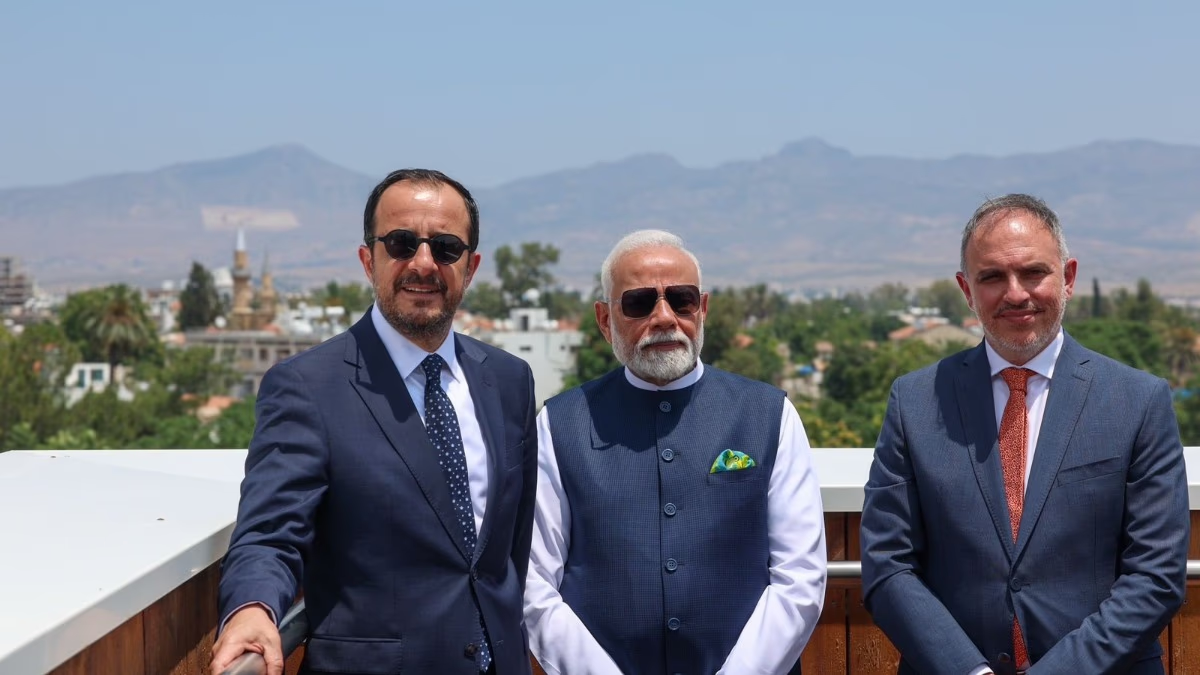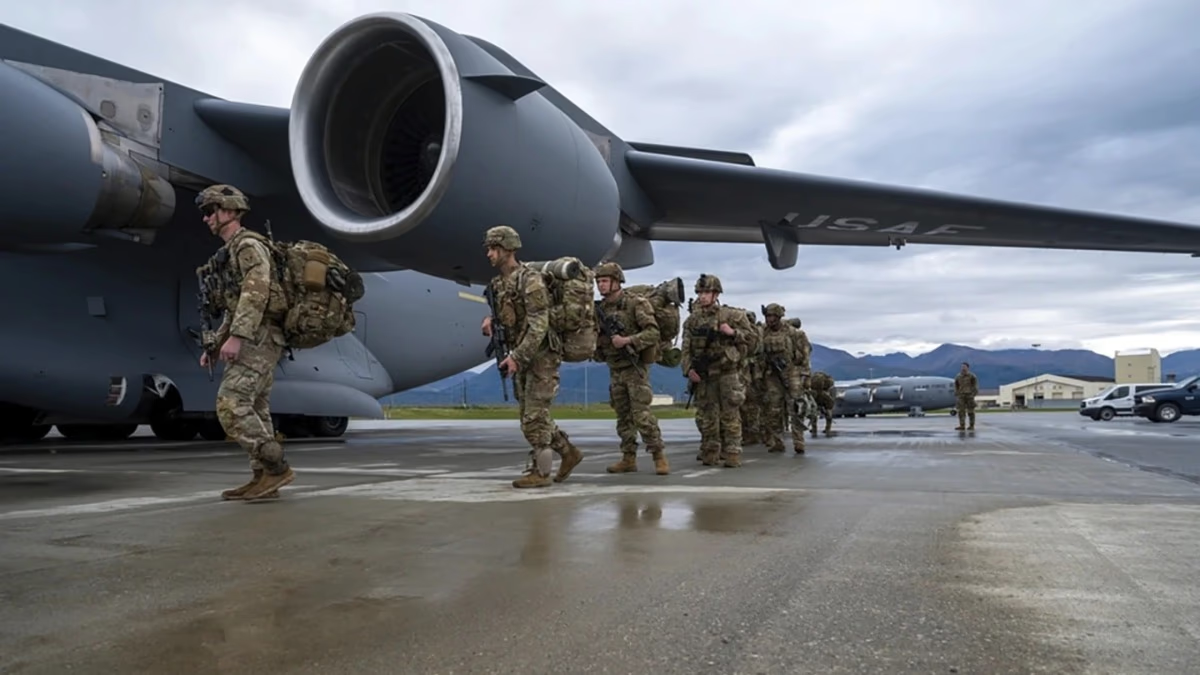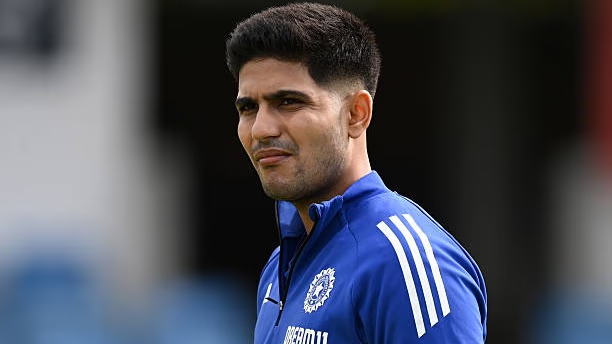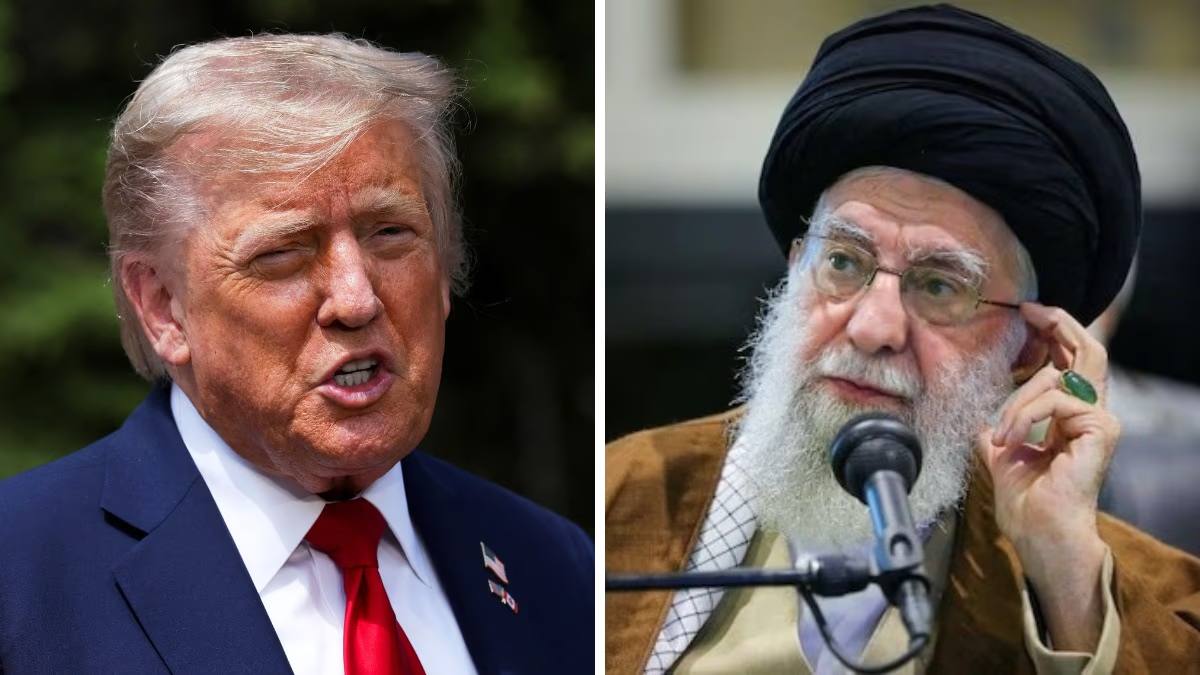Imagine China's President Xi Jinping arriving in Pakistan and, while standing at the border, pointing towards Kashmir while conversing with Pakistani PM Shahbaz Sharif. How would India feel? This would indeed be perceived as an act of provocation against India. However, this scenario unfolded with Turkey, not India, at the helm but involved India instead. During his visit to Cyprus, Indian PM Narendra Modi visited the territory occupied by Turkey from Cyprus. Modi and Cyprus President Nikos Christodoulides held talks in Nicosia, right in front of the Turkey-controlled Northern Cyprus, with TRNC's flag visibly in the background. Analysts regarded the choice of venue for their discussion as a symbolic warning to Turkey.
Indeed, during Operation Sindur, Turkey openly supported Pakistan. Clearly, India wasn't pleased with Turkey's actions, which led many Indians to boycott Turkish products. Now it was time for our leader to respond. By visiting Cyprus, Prime Minister Narendra Modi delivered a clear message to Turkey: if you view Kashmir, we are ready to sever ties in Northern Cyprus swiftly.
The Significance of Modi's Cyprus Visit in the Context of Turkey
Recently, under Operation Sindur, India targeted terrorist infrastructures in Pakistan and Pakistan-occupied Kashmir (PoK). During this time, Turkey provided Pakistan with drone supplies and open support, escalating tensions in India-Turkey relations. After the conflict ended, Pakistan's PM Shahbaz Sharif and Army Chief Field Marshal Asim Munir visited Turkey, expressing gratitude. Similarly, PM Modi was the first to visit Cyprus following Operation Sindur. The relationship between Cyprus and Turkey resembles that of India and Pakistan.
This may explain PM Modi's visit to Cyprus. Cyprus has been embroiled in a territorial dispute with Turkey since 1974 (with Turkish occupation of Northern Cyprus), perceived as a diplomatic message from India to Turkey. Both Cyprus and India are affected by Turkey's policies, and this visit might be a response to the Turkey-Pakistan alliance.
India's visit to Cyprus is seen as a strong diplomatic message to Turkey in the city of Nicosia, as India strengthened its historical ties with Cyprus and supported Cyprus on the issue of Turkey-occupied Northern Cyprus. Cyprus and Turkey have had long-standing tensions, and India's stance is seen as a diplomacy of 'the enemy of my enemy is my friend.' India supports resolving the Cyprus issue in line with United Nations Security Council resolutions and international law, which view Turkey's occupation of Northern Cyprus as illegal.
Occupied Northern Cyprus: The Root of the Dispute
Cyprus, a Mediterranean island nation, has been caught in a complex territorial dispute with Turkey since 1974, reminiscent of the Kashmir issue. In 1960, Cyprus gained independence from British colonial rule. The island hosts two main ethnic communities—Greek Cypriots (about 78%) and Turkish Cypriots (about 18%). Tensions between the communities began escalating in the 1950s when Greek Cypriots sought integration with Greece, while Turkish Cypriots supported the island's division.
In 1974, a coup by the Greek-supported Cypriot National Guard aimed at uniting with Greece prompted Turkey to launch a military offensive, seizing about 37% of the territory under the guise of a peace mission.
In 1983, Turkey declared the occupied northern part as the Turkish Republic of Northern Cyprus (TRNC), recognized only by Turkey. The international community, including the United Nations and the European Union, views it as part of the Republic of Cyprus.
The island is divided by a UN-patrolled Green Line, separating the Greek Cypriot-controlled south from the Turkish-supported north. The invasion displaced around 150,000 Greek Cypriots from the north and saw the relocation of 60,000 Turkish Cypriots from the south to the north.
Turkey maintains a military presence in Northern Cyprus and has settled Turkish citizens there, which the international community deems illegal. The United Nations Security Council has condemned Turkey's occupation in several resolutions (such as UNSC Resolution 367).
The Republic of Cyprus and the international community deem Turkey's occupation illegal and advocate for the island's reunification. Turkey and TRNC propose a confederal solution or the existence of two separate states.
Modi's Visit and the Potential Spotlight on the Dispute
Prime Minister Narendra Modi's visit to Cyprus on June 15-16, 2025 (the first in 23 years), is seen as a diplomatic signal to Turkey, especially after Operation Sindur (May 2025), which saw Turkey supporting Pakistan. India reiterated its support for Cyprus's sovereignty and territorial integrity, sending a clear message to Turkey.
India backed resolving the Cyprus issue based on UNSC resolutions and international law, opposing Turkey's position. As Cyprus assumes the EU Presidency in 2026, this visit raises the potential for highlighting the Cyprus dispute on a global stage. Discussions on the India-EU Free Trade Agreement and Cyprus's role in IMEC increase the likelihood of the issue receiving attention on European forums.
Cyprus has supported India's stance against terrorism, especially after the Pahalgam attack on April 22, 2025, and expressed intentions to raise the issue of Pakistan's cross-border terrorism in the EU. This reflects solidarity against the Turkey-Pakistan alliance.
This visit is part of India's broader Mediterranean strategy, strengthening ties with Turkey's rivals like Greece and Armenia. It ties the Cyprus dispute to India's global diplomacy efforts, which will certainly bring the issue into sharper international focus.




